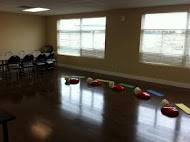Unlike other natural catastrophes, flooding is predictable and mostly preventable. Flooding is defined as the overflow of water that immerses land that is typically dry. In the United States, it proves to be a yearlong problem. In the winter and early spring, snow combined with rain can cause floods, while severe thunderstorms are known to cause intense rain in the spring and summer. Moreover, during summer and fall, tropical cyclones can bring heavy rainfall. Flooding usually occurs due to intense rainfall over a short period of time or extended rain falls over a number of days. Other causes include failure of dams and other water control structures and ice or debris jamming a river cause water to overflow. Flooding typically causes drowning and billions of dollars in damages yearly
Before Flooding
Even though one lives in an area with a low risk of flooding, one should never remove the fact that when it rains, it can cause flooding. There are several ways to prepare for a flood, which include:
- Create an emergency kit and make a communication plan for the family.
- Before building a home, consider building it in an area that is not considered a floodplain, unless the home is elevated and reinforced.
- If one lives in an area that is considered high flood risk, elevate the furnace, water heater and electric panel in the home.
- To prevent flood water from backing up into the drains of the home, consider installing “check valves.”
- Build barriers to prevent floodwater from entering the building, complete with seal walls in basements with waterproofing compounds, if feasible.

During Flooding
During flooding, it is essential to have presence of mind at all times. The following tips are generally recommended:
- Listen to the television or radio for further information.
- If there is a possibility of a flash flood, immediately move to higher ground, even without instructions from authorities.
- If one is preparing to evacuate, secure the house. Transfer the essential items to a higher floor and bring in outdoor furniture, if there is time.
- Switch off utilities at the main valves or switches. Unplug electrical equipment and do not touch electrical appliances when standing in water or if wet.
- Do not move through moving water, nor drive into flooded areas. The car should not be parked along bodies of water.
- If one is stranded in a home where flooding has already begun, get help immediately and go to higher ground.
After Flooding
Many dangers still exist despite floodwater going down. The following are reminders that can help in the days after flooding:
- Get information and expert informed advice as soon as it is available to receive local alerts and warning systems.
- Do not move through moving water.
- Avoid going to damaged areas unless there is assistance.
- Do not return home unless it is deemed safe by authorities.
- When entering buildings, use extra caution, as there may be hidden damages, particular in its foundations
Catastrophes can occur all throughout year, thus it is necessary to be prepared at all times. To learn how to prepare and how to act during natural disasters such as flooding, enroll in First Aid Courses.
Online Sources:
